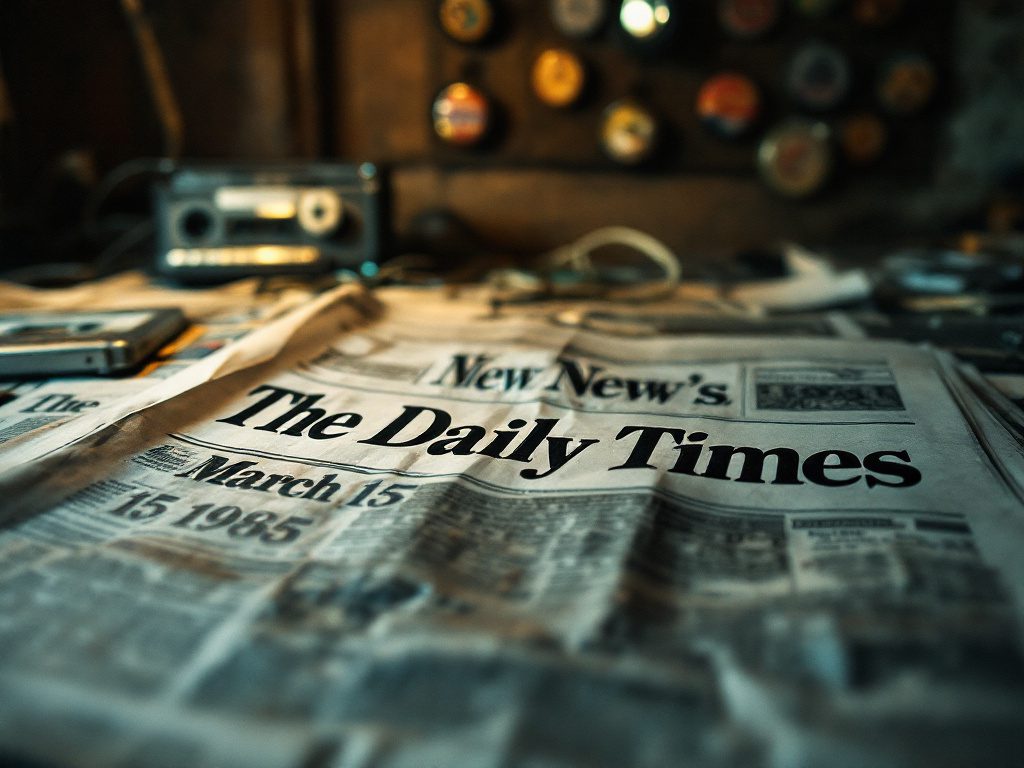Government Overreach and the Silencing of Truth
The world learned a hard lesson this spring: freedom of the press hangs by a precarious thread, even in countries that tout themselves as global beacons of democracy. When the Trump administration abruptly placed the Voice of America (VOA) into a state of suspended animation, more than 1,300 journalists and contractors were barred from their work, and the broadcaster’s influential programming vanished from the airwaves. The echoes of silence reached corners of the world where unbiased news is already scarce, underlining the real-world stakes of American political battles over media independence.
One might ask, why target VOA? Unlike Fox News or CNN, Voice of America is a publicly funded international broadcaster whose mission—established during World War II—has always involved cutting past propaganda to offer facts and hope in places where both are uncommon commodities. For millions living under autocracy or censorship, these broadcasts have served as a lifeline to the outside world. Yet, as detailed by a coalition of press freedom advocates and reported by Reporters Without Borders, the Trump administration’s executive order on March 14, 2025, “eliminated to the maximum extent” non-required staff and froze federal grants, effectively pulling the plug not just on wires and transmitters, but on the flow of information itself.
In response, press freedom organizations sprang into action. Emergency lawsuits, led by Reporters Without Borders (RSF) and bolstered by widespread outrage among journalists, sought to undo what many saw as a clear affront to the First Amendment. Federal judges sided with these plaintiffs, issuing injunctions and temporary restraining orders that gradually moved the needle, forcing the government’s hand even as it tried to appeal each ruling. According to Assistant U.S. Attorney Brenda González Horowitz, only a judge’s intervention—and the sustained outcry from independent watchdog groups—paved a path for VOA’s “phased return” to the air.
How Press Freedom Became a Political Pawn
History offers no shortage of warnings about the consequences of media suppression by those in power. Chilling parallels exist between VOA’s recent suspensions and the authoritarian tactics seen in Hungary under Viktor Orbán, or in Putin’s Russia—regimes where silencing inconvenient truths is a playbook, not an aberration. Yet this episode stands out for its happening in a country whose leaders are meant to champion democratic ideals.
The Trump administration’s assault on VOA was not an isolated incident. It belongs to a larger pattern of conservative attempts to undermine checks and balances: from efforts to delegitimize mainstream news outlets as “fake news” to attempts at stifling government scientists and intimidating whistleblowers. According to a detailed review by Columbia Journalism Review, these maneuvers form part of a broader anti-democratic trend, weaponizing skepticism toward institutions for short-term political gain.
Voice of America’s case, though, went a step further. The order that halted programming crippled not just the VOA newsroom but radio services like Radio Free Europe and Radio Free Asia, cutting information lifelines to societies hungry for honest reporting. As Steve Herman, VOA’s chief national correspondent, put it in stark terms: “We’re going to have to bring VOA out of a deep coma… Is it possible that it’ll ever regain full consciousness? That remains to be seen, because so much of the brain of VOA was destroyed by trying to strangle us.”
“We’re going to have to bring VOA out of a deep coma… Is it possible that it’ll ever regain full consciousness? That remains to be seen, because so much of the brain of VOA was destroyed by trying to strangle us.”
What’s truly alarming is the speed with which bureaucratic levers—ostensibly insulated from partisanship—were twisted into blunt instruments to suffocate dissent. A D.C. Circuit panel, including two Trump appointees, did pause some orders to block all funding cuts, but the existential damage was already done. Even after partial legal victories, funding for critical sister networks remained in limbo, leaving entire swaths of the globe in an information blackout. Jane Kirtley, professor of media ethics at the University of Minnesota, warns that “weakened trust in government-funded media weakens democracy itself.”
The Fight to Rebuild—and the Danger of Complacency
Now, with computer system access restored and a window to resume programming, VOA faces a daunting road to recovery. Staffers are trickling back into the studio, tasked with reviving content in 49 languages for some 360 million listeners. The legal victories are a testament to the resilience of press freedom advocacy—but the months-long interruption has left a scar.
Beyond that, we must confront uncomfortable questions: When political agendas so easily sabotage an institution built on truth, what protections do we truly have? Can VOA and other public broadcasters buffer themselves against future purges? Mary Ellen O’Connell, an expert on international law at Notre Dame, cautions that “the precedent here—where an administration unilaterally kneecaps a global news outlet—should shatter any complacency about separation of powers.”
If press freedom can be rolled back this easily, what next? Stripped of VOA’s vital reporting, entire audiences in Russia, China, Iran, and beyond went uninformed, depriving millions of an alternative perspective on world events. With media repression escalating worldwide—Reporters Without Borders again ranks press freedom in 2024 at its lowest point in decades—America’s willingness to shut down its own voice cannot simply be dismissed as politics as usual.
Which leads us, inevitably, to the moral imperative underpinning the VOA crisis: Defending the independence of public media isn’t an abstract civic exercise. It is, in a very real sense, the battle for the soul of democracy. For progressives, and any defenders of pluralism, the message is clear: Guardrails must be strengthened, not just relied upon. Congress and the courts held the line for now, but a future administration with little regard for norms could force a repeat performance. As John Lansing, the former head of USAGM, argued in The Atlantic, “the threat to media freedom is now internal as much as external.”

